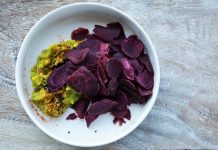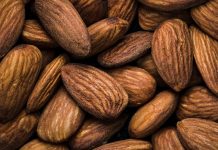
The connection between a diet rich in fruits and vegetables and the risk of hypertension has been a topic of extensive research.
This systematic review and meta-analysis aimed to collate the findings of various prospective studies to ascertain if particular types of fruits and vegetables were especially beneficial in reducing the risk of hypertension.
Research Methodology: Sifting through Vast Data
The research team conducted a thorough search of Embase and PubMed databases for prospective studies related to fruit and vegetable consumption and the risk of hypertension until 15th May 2022.
The strength of evidence was assessed using the World Cancer Research Fund (WCRF) criteria.
Results: Fruit Intake More Beneficial Than Vegetables
The analysis included eighteen prospective studies encompassing 451,291 participants and 145,492 cases.
Risk reductions were noticeable up to 800g/day for fruits and vegetables combined, and 550g/day for fruits alone.
The WCRF criteria considered these associations as likely causal.
The team found certain fruits and vegetables such as apples, pears, blueberries, raisins, grapes, avocados, broccoli, carrots, and lettuce showed inverse associations.
However, cantaloupe, Brussels sprouts, cruciferous vegetables, and total and fried potatoes showed positive associations.
Conclusion: Fruits Over Vegetables for Hypertension Risk Reduction
The study concluded that a high intake of combined fruits and vegetables, especially fruits, was linked to a reduced risk of hypertension.
However, the results varied for different types of fruits and vegetables, indicating a need for further research in this area.
This study provides a valuable insight into the role of diet in managing hypertension, highlighting the importance of fruit intake in particular.
How to reduce high blood pressure risk
To reduce the risk of high blood pressure, also known as hypertension, you can adopt the following lifestyle changes and strategies:
Maintain a healthy weight: Being overweight or obese increases the risk of developing high blood pressure. Ensure you maintain a healthy weight through a balanced diet and regular exercise.
Eat a healthy diet: Follow a diet that is low in sodium (salt), saturated fats, and cholesterol. Increase your intake of fruits, vegetables, whole grains, lean proteins, and low-fat dairy products. This is known as the Dietary Approaches to Stop Hypertension (DASH) diet.
Reduce sodium intake: Limit your sodium consumption to no more than 2,300 milligrams (mg) per day, or even less if advised by your doctor. Avoid processed and packaged foods, as they tend to be high in sodium.
Exercise regularly: Engage in moderate aerobic exercise for at least 150 minutes per week or vigorous exercise for 75 minutes per week. Physical activity helps lower blood pressure and improves overall cardiovascular health.
Limit alcohol consumption: Excessive alcohol intake can raise blood pressure. Limit yourself to moderate drinking, which means up to one drink per day for women and up to two drinks per day for men.
Quit smoking: Smoking damages blood vessels and increases the risk of high blood pressure. Quitting smoking is beneficial for your overall health and helps lower blood pressure.
Reduce stress: Chronic stress can contribute to high blood pressure. Find healthy ways to manage stress, such as exercise, relaxation techniques (meditation, deep breathing), engaging in hobbies, and spending time with loved ones.
Limit caffeine intake: While the impact of caffeine on blood pressure varies from person to person, it’s advisable to moderate your caffeine consumption, especially if you’re sensitive to its effects.
Monitor your blood pressure: Regularly check your blood pressure at home or visit your healthcare provider for routine measurements. Early detection allows for timely intervention and management.
Get adequate sleep: Aim for 7-8 hours of quality sleep per night. Poor sleep or sleep deprivation can contribute to high blood pressure.
Remember, if you have concerns about your blood pressure or overall health, it’s essential to consult with a healthcare professional for personalized advice and guidance.
The research is published in the European Journal of Nutrition.
Copyright © 2023 Scientific Diet. All rights reserved.








